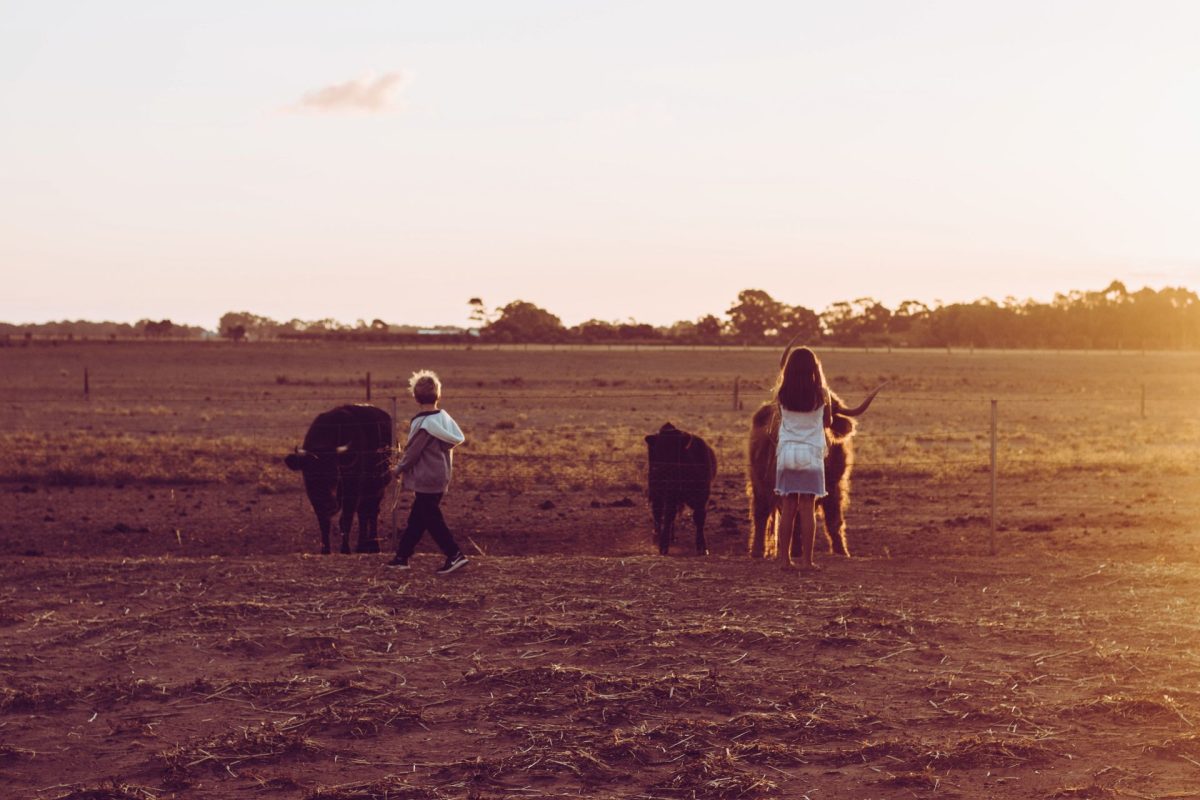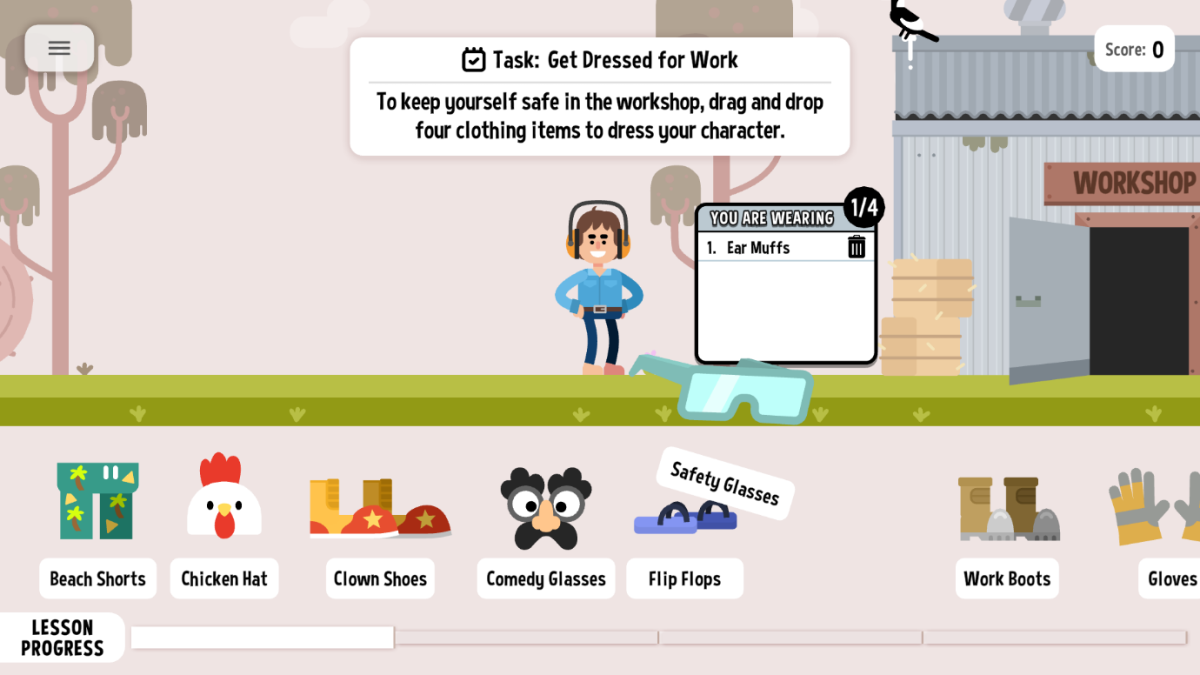
In the lead up to Christmas, the release of a new university-developed game called ‘Calm Your Farm’ is helping parents teach their children about farm safety. Image: James Cook University.
While NSW Farmers is reminding all holidaymakers to be extra safe if visiting rural properties this summer, three universities have developed a game approach to injury prevention.
The free, online, educational game called ‘Calm Your Farm’ increases knowledge and awareness about farm safety by allowing teenagers to learn about potential hazards and ways to reduce injury risk in the farm environment.
Offering four modules based on high-risk areas or hazards on the farm – vehicles, workshop, paddock and water – players select a character at the start and progress through the modules, completing mini games along the way.
Student tried and tested, the content includes practical information about injury prevention, such as how to ride a quad bike safely, recognise hazard symbols and select appropriate clothing for different tasks.
The researchers hope the game engages teenagers more strongly in farm safety and helps to reduce the number of farm-related injuries.
The most recent national data from the Australian Institute of Health and Welfare (AIHW), showed that from 2010-12 and 2014-15, 22,000 people were hospitalised due to an injury which occurred on a farm.
Project lead, Dr Amy Peden, an injury prevention researcher at UNSW Medicine & Health, said in thinking about the next generation of farmers, the team saw an opportunity to intervene with the adolescents while they were still in school.
“Adolescents are particularly vulnerable to injury in the farm environment, they are often given on-farm work responsibilities more and more as they get older and thus frequently exposed to hazards not typically seen in the home,” she said.
“The options for getting injured are broader for this age group. They’re more likely to be seen as a worker, someone who can assist. We also know that this is the age when they start to do things unsupervised by their parents, with their friends instead. The farm is often a home and a workplace, which makes things more challenging from an injury prevention perspective,” Dr Peden said.
Researchers held focus groups with students and teachers at agricultural high schools in regional areas of NSW and Tasmania, to better understand the problem of farm injuries and explore potential interventions.
“What was interesting is that nearly everyone knew someone who’d had a pretty horrific injury on the farm, or they’d been injured themselves,” Dr Peden said.
“It became clear this is a really big issue and we could do better in terms of primary prevention, starting with a fun way to educate.”
To deliver farm safety education in a more dynamic, interesting way, the researchers decided to create a game that would teach players about safety in the agricultural environment, with input from the students from the focus groups.
“We’ve been co-designing the game with these students, so it’s more appealing to them,” Dr Peden said.

Calm Your Farm teaches players how to select appropriate clothing for different environments on the farm. Image: University of NSW.
Once the game was developed, students in the focus groups had the opportunity to test it out and gave it a big thumbs up.
“It’s the principle of gamification – you don’t want it to be too easy. You want kids to come back again and keep learning,” Dr Peden said.
Professor Richard Franklin from James Cook University said farm injury statistics had not been dropping as fast as other injuries and, in some areas, had remained stagnant over the past decade.
“It is hoped that this resource will engage young minds in what can be undertaken to keep people safe on farms,” he said.
Calm Your Farm is freely available online at www.calmfarm.education
The collaboration included researchers in injury prevention, education and game development from UNSW, the University of Technology Sydney (UTS), James Cook University and the University of Sydney Rural Medical School and was supported by the Federal Department of Agriculture, Fisheries and Forestry, through the National Farm Safety Education Fund: Improving Farm Safety Practices grant program.
Meanwhile, NSW Farmers workplace relations spokesman Chris Stillard said everyone had a role to play in staying safe if visiting farms over the Christmas and summer holiday period.
“We love sharing our farming properties with family and friends, but visitors need to remember they are workplaces that need to be treated with respect,” he said.
“If you’re going to be visiting a farm, take the time to discuss potential safety risks such as dams, livestock, and vehicles.”
Potential visitors should be reminded to keep away from working parts of a farm such as milking sheds or stockyards, avoid sheds containing tools and chemicals, and to only use vehicles such as motorbikes, quad bikes or side-by-sides if properly trained and wearing the correct safety equipment.
“Common sense says you wouldn’t drive a car without a driver’s licence or ride a motorbike without a helmet, and the same goes for gear on-farm,” Mr Stillard said.







